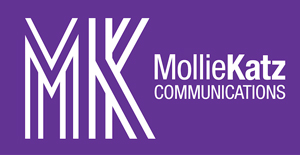You’re sitting at your desk to start a writing assignment, a blank screen in front of you. But getting your ideas flowing is hard. Wouldn’t it be great if you could get this done more easily? You can when you delegate the first draft. But should you pass the task to another writer or use artificial intelligence?
Often in the past I’ve received enthusiastic responses when I’ve said to people, “How about I write a draft, and you edit it?” It’s so much easier to react to a first draft than to compose from scratch.
But with the AI revolution rumbling through communications and marketing, robots that can write are a viable alternative. Can generative AI do as good a job as an experienced human writer?
I’ve started seeking answers by attending webinars and meetings about AI’s use in communications, marketing and journalism.
I quickly discovered that people bring far more than computers do to producing compelling copy. (Phew!) Here’s what I’ve learned so far.
AI’s Weaknesses
AI’s proposition is that it will save you time and effort. But several communicators I’ve heard from say AI tools are most valuable for spurring ideas. Some have called generative AI tools a muse, others have described it as a thought partner. Either way, it’s only a starting point.
The value of the writing AI produces, users say, hinges on the quality of the prompt you put in. Like many technologies described as easy to use, it’s only easy once you’ve gained experience.
You need to be skeptical of information AI gathers. Some of it is inaccurate, untrustworthy or biased. That’s major! Bots even make up some of the data they present, so verifying sources is vital.
Most important, though, AI is not designed to produce copy that sounds original. The only universe it can draw from is copy written before and placed on the internet.
Microsoft explains the AI vs. human dilemma nicely: “AI writers are, so far, limited in their abilities to create emotional and engaging content. Humans, by nature, are storytellers. We have been since the beginning. Robots, however, are not. They are limited by what they’re programmed to do, and AI bots are programmed to gather information and make an educated guess about what you want to hear.”
The Human Advantage
A human writer, on the other hand, can deliver much more than what a robot thinks you want to hear.
She has logic and imagination. She draws upon nuanced judgment, memory, emotion, speculation and a sense of the prevailing climate surrounding a given topic.
A human writer may perceive new ideas your audience needs to hear. She may be able to articulate these ideas in powerful ways you may not have considered.
Stephen Covey, a management consultant, underscored the importance of improving upon a first attempt when he wrote, “There’s a mental or first creation and a physical or second creation to all things.” Delegating writing to a person, not a bot, is a productive way to develop copy that is fresh, accurate and stirring to the people you need to reach.



